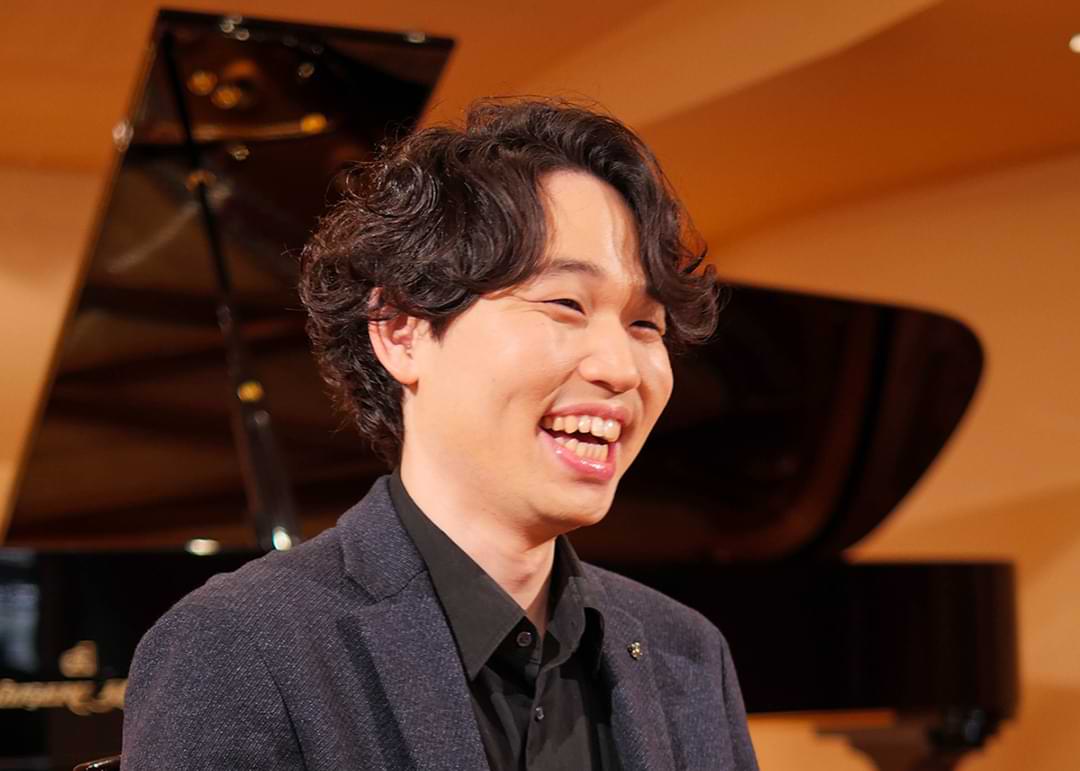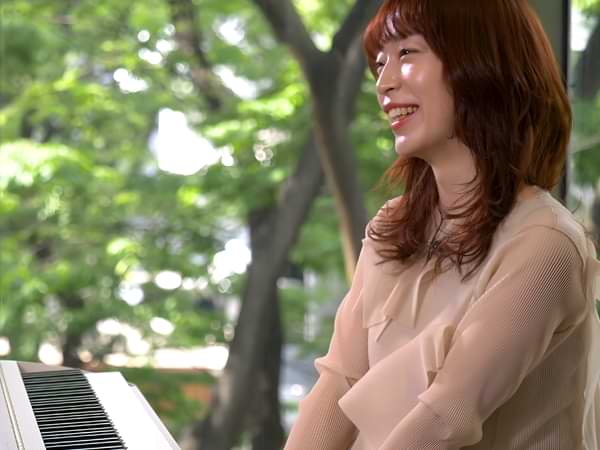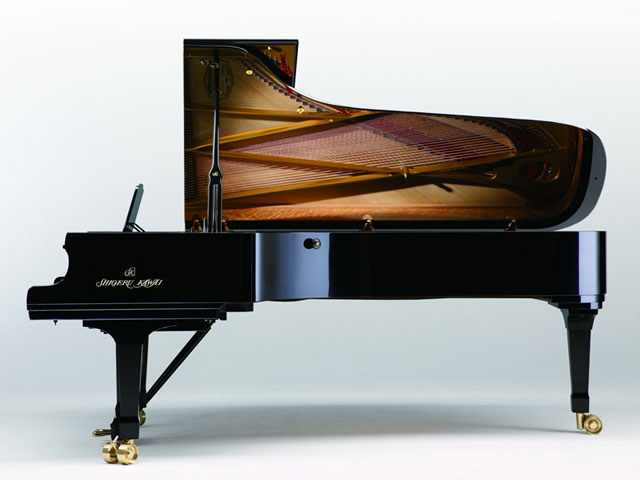On June 13th, Dina Yoffe performed at the Kawai Concert 2023, held in Hyogo, Japan. After the concert Kawai's artist relations team asked the pianist's thoughts about the program, the state of international piano competitions in recent times from the perspective of both jury members and teachers, and her views on up-and-coming pianists in Japan.
Interview, text and translation: Nanako Takeda
Excerpts from the Kawai concert, held in Hyogo, Japan, can be watched in the video below:
Contents
Reasons for program selections
Every year, I carefully choose a theme for my programming, and this year I decided on Beethoven for the first half. I selected the contrasting works of Piano Sonata No. 14, the ‘Moonlight’ and 15 Variations and Fugue in E-flat Major ‘Eroica Variations’. I followed this with Silvestrov’s The Messenger because of the ongoing conflict between Ukraine and Russia. Although I know I can’t make a significant impact, I wanted to support Ukraine as a human being and as an artist by performing this exceptional piece. Finally, I included Chopin’s Piano Sonata No.3 because he has always been a part of my life. I am turning 70 this year and wanted to play this piece to reflect my own musical journey. With age, I’ve come to understand and perceive things I might not have realized before. It’s been almost 50 years since I participated in the Chopin International Piano Competition in 1975, and now feels like the right time to play this work.
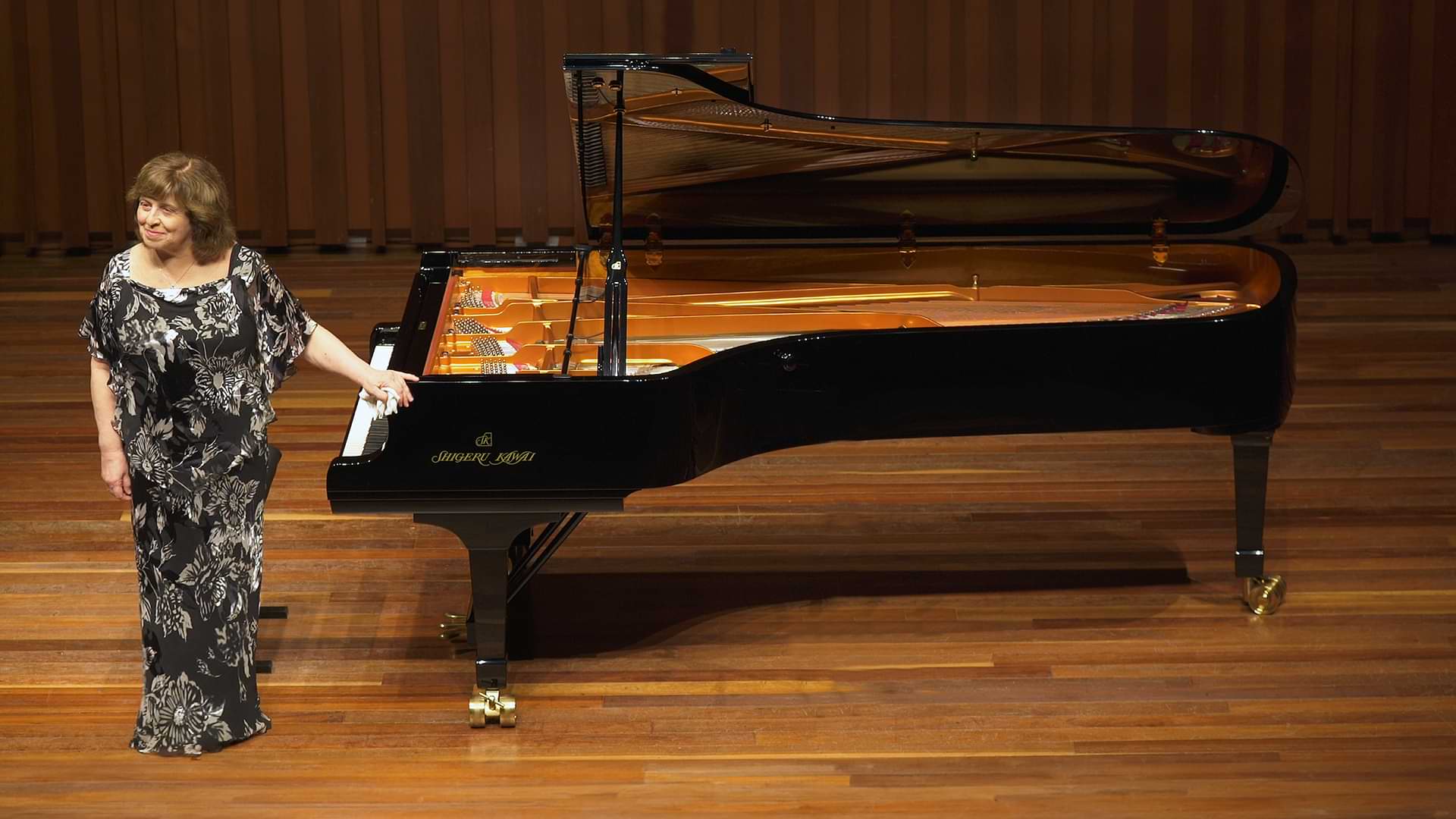
Views on current international competitions, from the perspective of a jury member
I find that everything has positive and negative aspects. One of the positive aspects of major international competitions like the Chopin, Hamamatsu, and Rubinstein Competitions is that they can be streamed and we can watch them wherever we are in the world, despite the time differences. This gives contestants the advantage of reviewing their performances objectively after they finish playing. And for music professionals, streaming reaches an audience of millions, which serves as a significant promotion and is therefore beneficial.
But the negative aspect of YouTube streaming is that the sound heard through electronic devices is quite different from what is experienced in a concert hall because streaming is artificially adjusted. Because of this there may be discrepancies in how people who listened to a concert in a concert hall evaluate a performance compared with how contestants evaluate the same performance when it's streamed electronically. This is also the case when their teachers listen to the performance in their home countries. So I believe that the evaluation criteria should be based on listening to performances in concert halls.
One thing I think that needs to be controlled during streaming is the display of viewers' comments during a performance because when such comments are malicious, this can be very distressing for contestants when they proceed to the next round. So I think it would be best not to show any comments during the competition period.
International competitions and career success
Competitions themselves may not serve as a ‘passport’ because there are pianists like Evgeny Kissin and Yuja Wang who have built remarkable careers without participating in major competitions.
But what is important, is how prizewinners continue to strive and grow after winning a competition.
Years ago, contestants wanted to get an idea of their position among their peers of a similar level, rather than building a career. But these days some contestants seem to participate in competitions with only a few Beethoven sonatas and Chopin etudes in their repertoire, and then they embark on travels with their suitcase, but not necessarily enough experience. In the past it was unthinkable for us to enter a competition without being fully prepared.
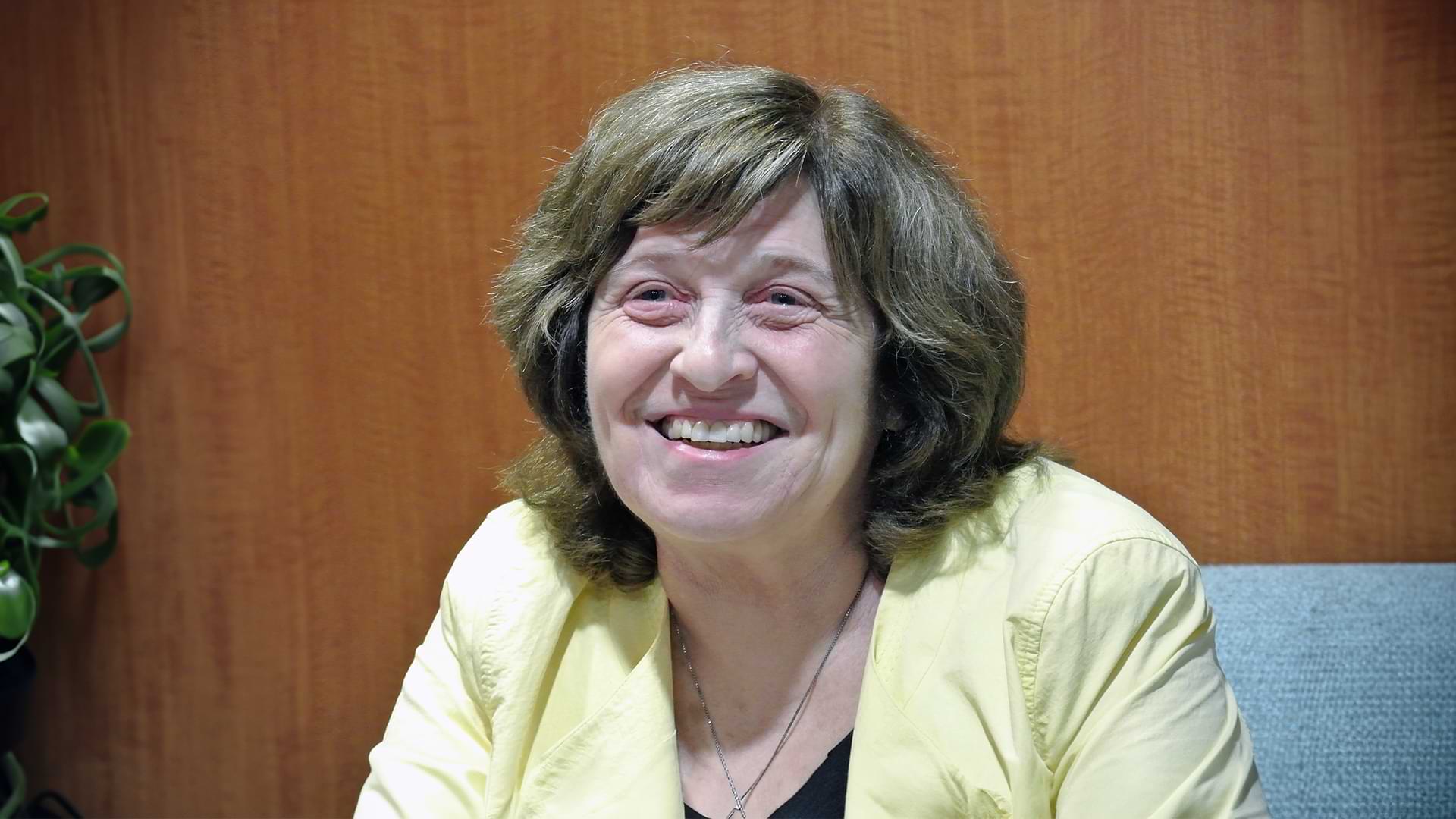
Challenges when judging musicians
The question of whether art can be scored is something that I have also pondered because it's quite challenging to assign numerical scores to art, and it isn’t always a comfortable task for the jury..
For example, if there’s a contestant who gave an outstanding performance, I might think: ‘This contestant deserves 25 points!’ while the jury member sitting next to me might only give him 17 points. However, after discussing this we might agree that the performance was excellent. For this juror giving 17 points could be considered high. But this is the disadvantage of using a numerical system.
When evaluating contestants, I’m more interested in their potential rather than whether their performance was flawless because as humans, we all make mistakes. As juries, I believe we should assess contestants while putting ourselves in their shoes. It’s far easier for juries because performing is a much more challenging task!
So I think about how I can help provide opportunities for the contestants because our job is to support them in ways that will benefit them in the future. While some juries might seek a performance without any mistakes, I believe it’s more important to empathize with the contestants' lives. For instance, regarding the situation in Ukraine right now, some people might feel distant from what’s happening, but as a human being I imagine the feelings of those enduring such a terribly harsh life. And the same applies to competitions: People involved in the arts should be empathetic because without empathy, art wouldn’t exist!
Encouragement for future Japanese pianists
My first visit to Japan was in 1979. I performed in the best concert halls, such as NHK Hall, Bunka Kaikan, Tokyo Metropolitan Festival Hall, and many others. The audience welcomed me warmly with great enthusiasm, I feel that Japan’s classical music environment has grown considerably over the years.
Regarding music education — not just competitions but also master classes organized by the Kawai Music Foundation — these provide important learning opportunities as well as support for young people, and they are truly wonderful.
I'd like to share with you my impression of the previous Chopin Competition because I believe that the most unique and interesting performances came from the Japanese contestants. Each of them had their own individuality and characteristics, and there were no players who simply focused only on technical prowess. In the past, people may have said that Japanese contestants were technically skilled but lacked imagination. However, I don't believe that this is the case any more. If there are still lingering insecurities among Japanese performers, I urge them to let go of such thoughts.
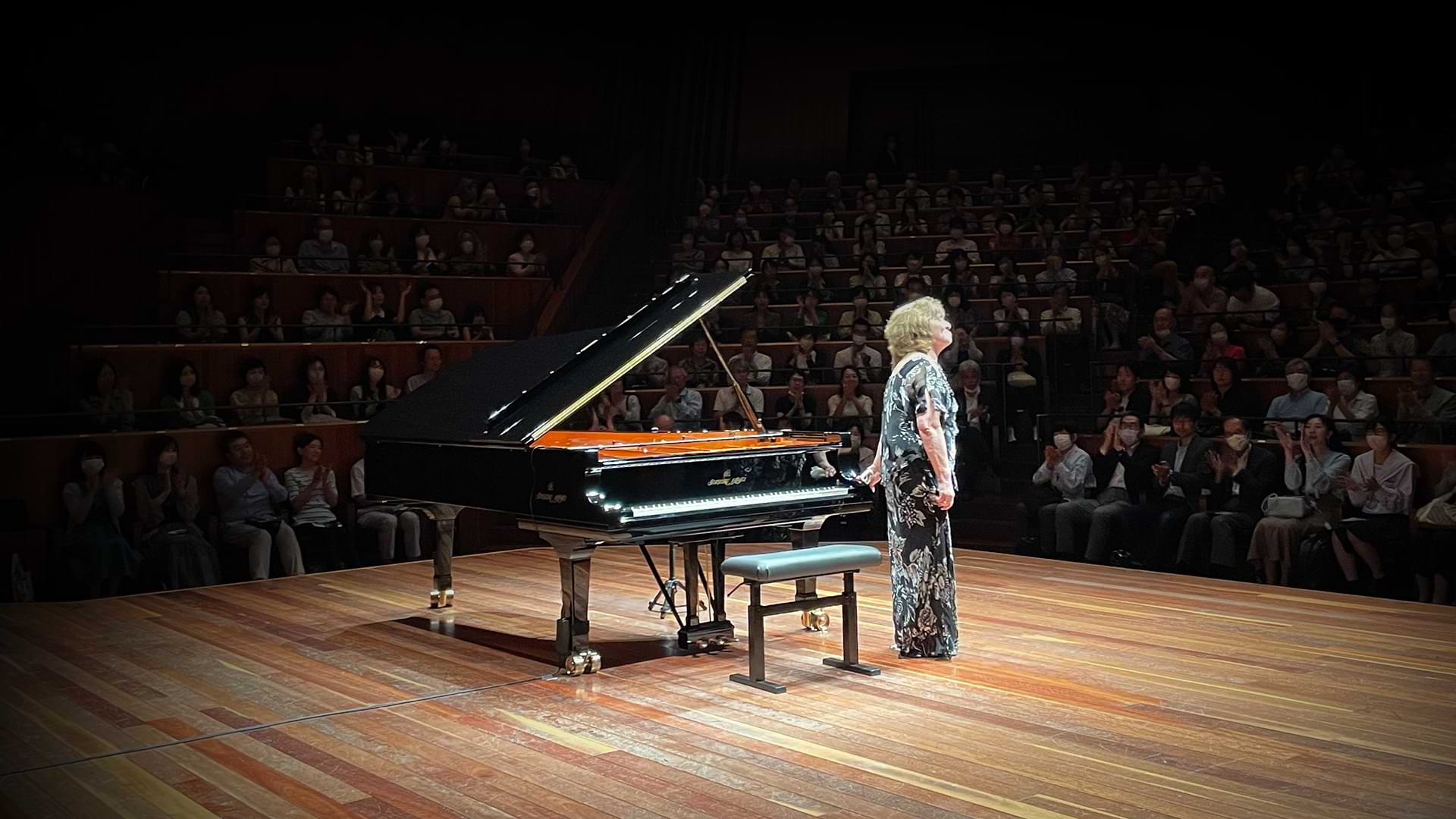
Essential characteristics for aspiring young pianists
Of course practice is crucial, but maintaining a balance between school and other aspects of life in addition to the piano is equally important. I want to tell children and their parents that ‘the piano isn’t everything in life.’ It’s essential to be close to nature and spend time with friends because those moments are equally valuable. Lately there seems to be excessive pressure on young children to become ‘champions’ in subjects like maths or ballet. However, parents should not decide their children’s lives, so don’t forget to allow them to have a normal life. If a child has always been told: ‘You must be No.1!’ and then fails to pass the preliminary round of a competition at around age 18, they might feel that their life has ended, but this should never happen. Life doesn’t end there!
Continuing with the piano is not easy. I believe that the key to staying on this path is the student’s feeling that ‘I love playing the piano!’ And the student should believe that ‘If I put in my best effort and energy into this, something good will come back to me.’ Therefore instilling such an attitude and philosophy in children is vital.
For more information about Dina Yoffe, please visit the artist's website: https://www.dinayoffe.com/

Writer
Nanako Takeda
Nanako Takeda is a music journalist based in Tokyo, Japan.
Nanako Takeda is a music journalist based in Tokyo, Japan.
